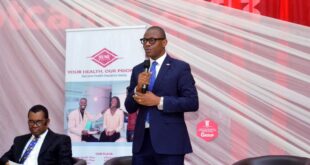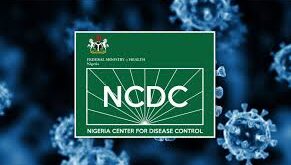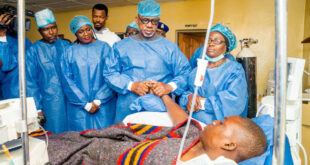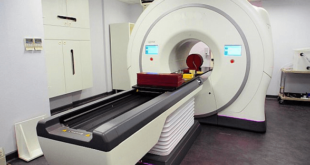By Oluwafunke Ishola
The European Society of Cardiology (ESC) says women must know their blood pressure to prevent heart disease and stroke.
Prof. Angela Maas, the ESC spokesperson, disclosed this in a message posted on ESC website in celebration of the World Hypertension Day.
Maas, Director, Women’s Cardiac Health Programme, Radboud University Medical Centre, Nijmegen, Netherlands, said cardiovascular disease was the leading cause of death in women.
“The risk for cardiovascular disease increases at a lower blood pressure level in women compared to men.
“My message to all women is to take your blood pressure seriously, know your values and convince your doctor that if it is too high then you need treatment.
“Don’t underestimate the long-term effects of high blood pressure,” she warned.
According to her, a critical consequence of hypertension in women is a type of heart failure in which the heart muscle is stiff.
“There are few treatments for that condition, so if you want to avoid symptoms such as shortness of breath, fatigue and fluid retention when you are over 70, you have to start treating high blood pressure in middle age.
“If you wait 20 years, it is too late,” she said.
Maas noted that one in three women have hypertension globally.
According to her, raised blood pressure has been named the most important risk factor for death in women across the world.
“Despite its importance, we know that hypertension is more often underestimated and not, or insufficiently, treated in women compared to men.
“One of the reasons may be that below the age of 50, hypertension is more prevalent in men.
“This reverses in the years after menopause so that after the age of 65, hypertension is more common in women than men,” she said.
She noted that it was a misconception that high blood pressure does not cause symptoms, stressing that symptoms are more pronounced in women but may be mistaken for menopause, anxiety or stress.
According to her, young and middle-aged women with high blood pressure often report palpitations, chest pain, pain between the shoulder blades, headaches, difficulty concentrating, shortness of breath, tiredness, fluid retention.
She further cited other complaints as poor sleep, hot flushes and a feeling that their bra was too tight.
“When we treat hypertension, many symptoms erroneously attributed to menopause disappear.
“Night sweats can be caused by high blood pressure, for example, women with menopausal symptoms should have their blood pressure checked and treated if needed,” she said.
The professor said that hypertension in midlife was more harmful in women than in similarly aged men, and was a stronger risk factor for myocardial infarction, cognitive decline and dementia.
“The probability of stroke increases at a lower blood pressure level in women than in men, while high blood pressure raises the risk for heart failure in women by three-fold, compared to two-fold in men,” she said.
Maas said that hypertension was currently defined as a systolic blood pressure of at least 140 mmHg and/or diastolic blood pressure of 90 mmHg or higher.
She, however, said that discussions are underway about whether normal blood pressure values should be lower in women compared to men.
“More research is needed before there is any change in treatment guidelines but I expect that within five years the threshold for normal blood pressure will be lower in women than men,” she said.
According to her, certain life events predispose women to developing hypertension such as having migraines from their teenage years, having two or more miscarriages, hypertension during pregnancy and preeclampsia (a more severe form of hypertension during pregnancy).
“Women have more of those specific life events than men.
“Physicians can use these clues to identify middle aged women at higher risk of hypertension and to signal that blood pressure monitoring needs to be taken more seriously,” she said.
She advised yearly monitoring at age 40 for women who have hypertension in their family or had hypertension during pregnancy.
“Women with preeclampsia should check their blood pressure from that pregnancy onwards at least twice a year.
“Women with no issues during pregnancy and no family history should start yearly measurement at age 50 when they enter menopause,” she advised.
According to her, a diagnosis of hypertension is not established from one measurement.
She recommended that women under 80 years of age should see their doctor for further investigation if their systolic blood pressure was 130 mmHg or higher.
Maas said those 80 years or older with a value of 150 mmHg should visit the doctor.
She stressed that a healthy lifestyle was critical to prevent or treat high blood pressure.
The professor called for regular exercise, nutritious diet, reducing salt intake, smoking cessation, losing excess weight and limiting alcohol consumption.
The News Agency of Nigeria (NAN) reports that World Hypertension Day is celebrated annually on May 17 with this year’s theme as: ‘Measure Your Blood Pressure Accurately, Control It, Live Longer’.
(NAN)
Subscribe to the Advocate News letter and receive news updates daily in your inbox.
 Advocate.ng Latest news update on politics, entertainment, sport and more
Advocate.ng Latest news update on politics, entertainment, sport and more




